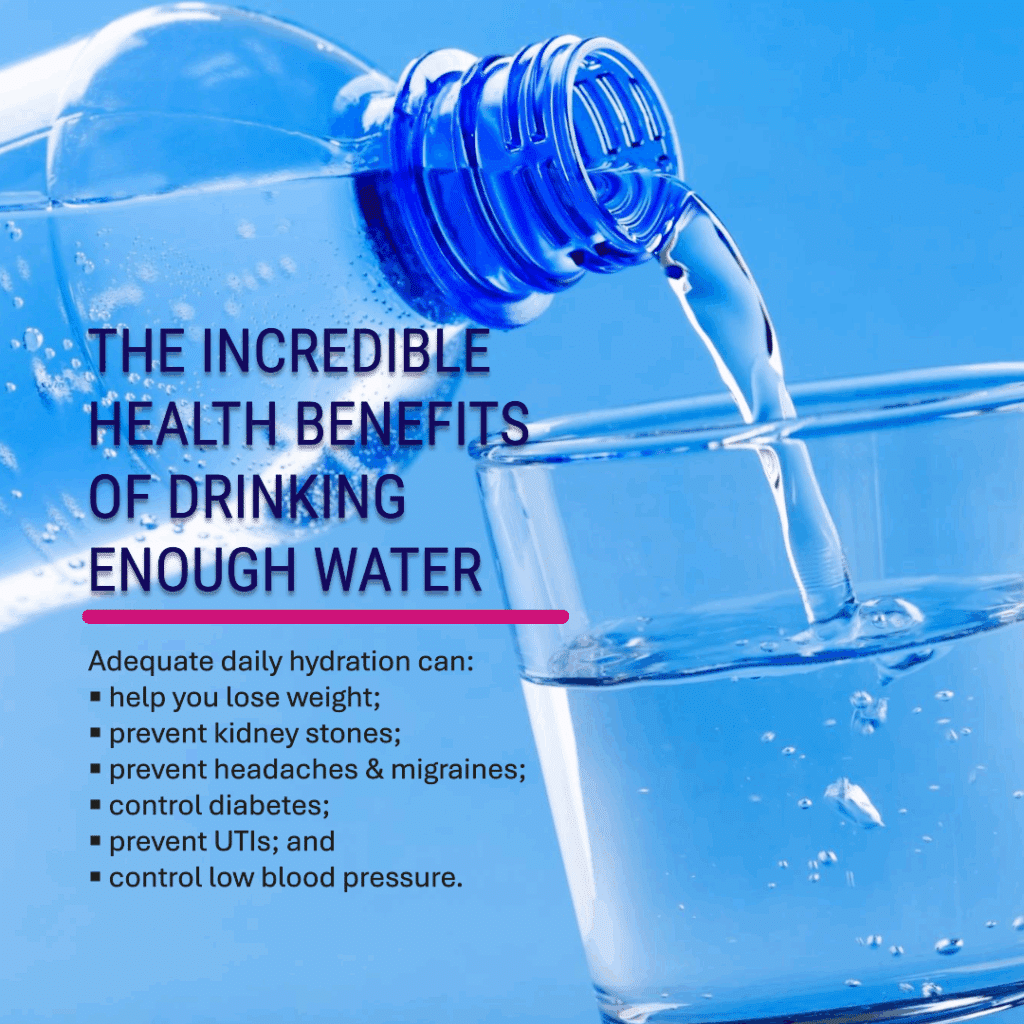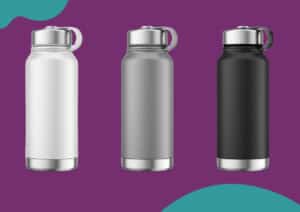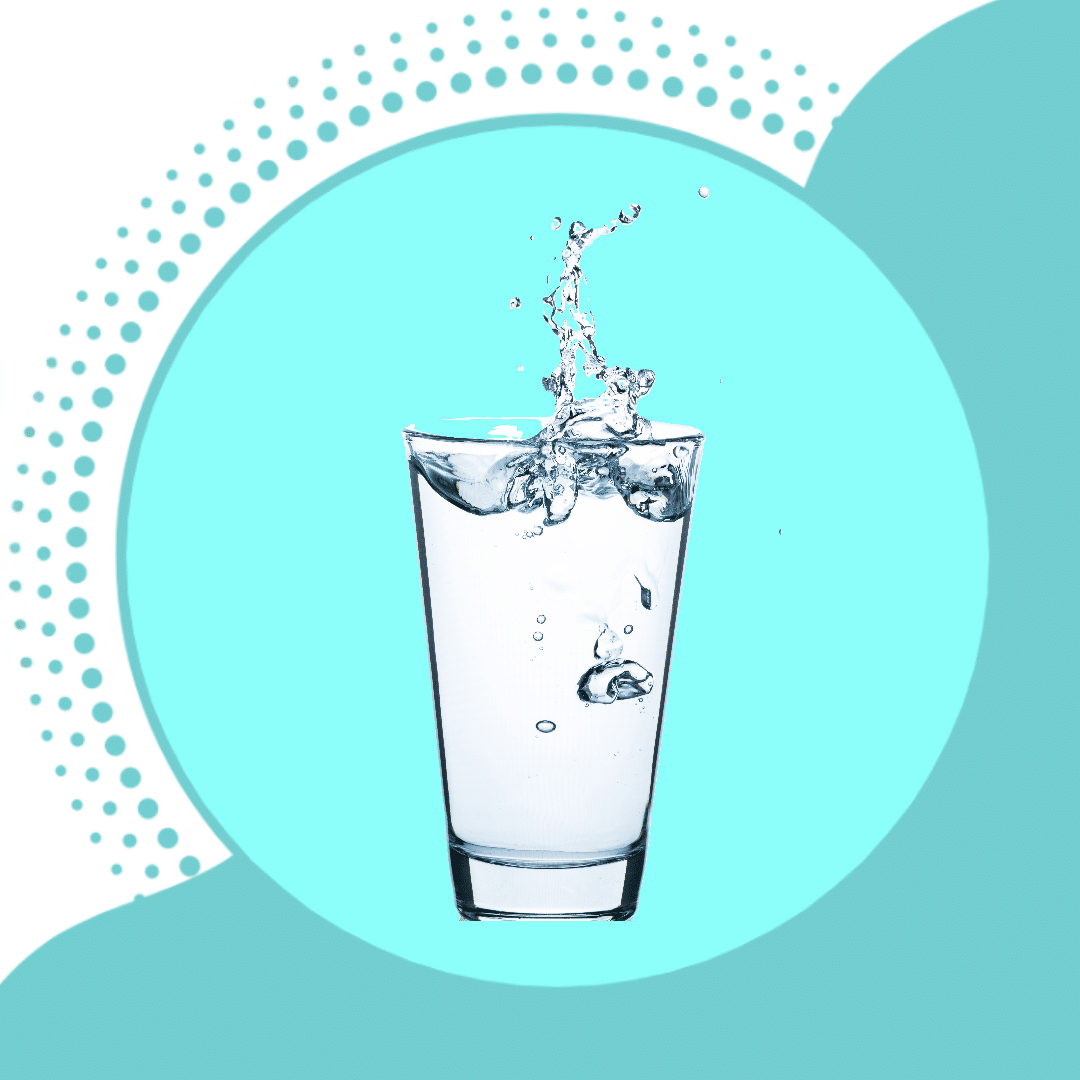What is completely free, takes minimal effort, and can improve weight loss by up to 44%?
Answer: Water
How can this be?
Simply put, water can reduce your hunger by stimulating satiety. Thirst and hunger can be easily confused. We recommend our patients consume at least one glass of water before each meal. If an individual drank a 500ml water bottle approximately 30 minutes before their main meals, their caloric intake could easily be reduced by over 200 calories. In a 2007 study, participants on a low-calorie diet were asked to drink a 500ml water bottle 30 minutes before each meal. Over the 12-week course of the study, subjects lost a significant 44% more weight than the participants who simply adhered to a low-calorie diet.
And that was just one example.
Increasing water intake doesn’t simply just reduce weight and weight-related factors like blood pressure, cholesterol, and body fat percentage; it can influence your mood, immune system, skin, and energy for the better.
According to recent research analysis at the University of California, San Francisco, it can help prevent migraines, kidney stones, headaches, and urinary tract infections (UTIs); as well as control diabetes, blood glucose levels, and low blood pressure.
Study here: https://jamanetwork.com/…/jamanetwo…/fullarticle/2827021


How much water should I drink?
Strive for 75-100 ounces a day.
That can be six 16.9 oz water bottles or three 32 oz Hydro Flask water bottles.
How can I reach my hydration goal?
- Bring a large reusable water bottle with you wherever you go. And make sure its filled.
- Drink a cup or two first thing in the morning.
- Drink a cup of water 20-30 minutes before your largest meals.
More precise consumption requirements are dependent on your activity level, age, gender, and health conditions (below you can see how the minimum water requirement changes for age and gender).
IOM Recommendations
| Demographic | Daily recommended amount of water (from drinks) |
| children 4–8 years old | 5 cups, or 40 total ounces |
| children 9–13 years old | 7–8 cups, or 56–64 total ounces |
| children 14–18 years old | 8–11 cups, or 64–88 total ounces |
| men, 19 years and older | 13 cups, or 104 total ounces |
| women, 19 years and older | 9 cups, or 72 total ounces |
| pregnant women | 10 cups, or 80 total ounces |
| breastfeeding women | 13 cups, or 104 total ounces |


